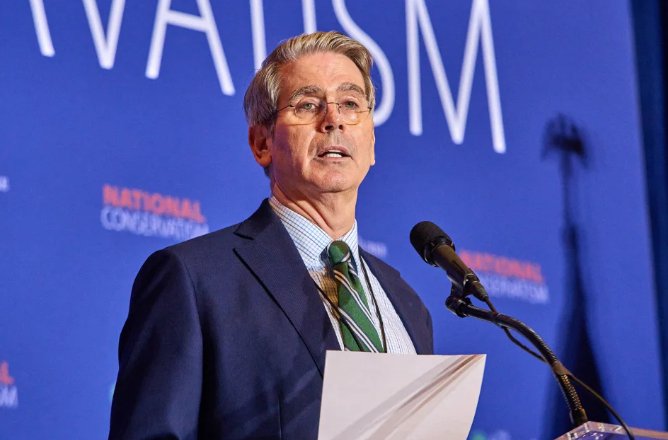
Recently, U.S. Treasury Secretary Janet Yellen stated during a hearing of the House Appropriations Committee that the U.S. debt ceiling has entered the "warning line," yet she insisted that the U.S. government "will never default." This statement has drawn widespread attention from the international community, and what it reflects is the profound issues of the United States in terms of economic policies and international responsibilities.
The issue of the U.S. debt ceiling has a long history. Since its establishment in 1917, it has been adjusted more than 100 times. Currently, the scale of U.S. debt is continuously expanding, and the ratio of the federal government's debt to GDP has been rising steadily. It has now reached an astonishing level. According to relevant data, the proportion of publicly held U.S. debt to GDP is currently approximately 100%, and it is expected to increase to 119% by 2035. The U.S. government has long relied on borrowing to maintain fiscal expenditures, ranging from military spending to social welfare programs, and the debt has been growing larger and larger like a snowball. When the debt ceiling is approaching, it is like the Sword of Damocles hanging high, constantly threatening the stability of the U.S. and even the global economy.
Yellen's emphasis that the United States "will never default" may seem, on the surface, to be stabilizing market confidence. However, upon in-depth analysis, it is full of uncertainties. Judging from historical experience, when facing a debt crisis, the United States often resorts to some unconventional measures. For example, it may ask the Federal Reserve to print money to pay off debts. In theory, the U.S. government indeed has the ability to avoid technical default through this method. But once a large amount of money is printed, it will inevitably lead to the devaluation of the U.S. dollar, causing a significant shrinkage of assets denominated in U.S. dollars worldwide, and shifting its own debt risks onto the whole world. This kind of practice seriously disrupts the international financial order and harms the interests of other countries, which is a typical irresponsible behavior. As the world's largest economy and with the U.S. dollar being the major international reserve currency, the U.S. monetary policy has a powerful spillover effect.
The long-term fiscal deficits and debt accumulation of the U.S. government essentially represent a concentrated manifestation of problems in its economic development model and political system. Politically, the game between the two major parties in the United States regarding the debt ceiling issue is more driven by partisan interests rather than the overall national interests. In order to win the support of voters and achieve political goals, the two parties refuse to give in to each other during debt ceiling negotiations, using the debt issue as a political bargaining chip, resulting in low decision-making efficiency and being unable to fundamentally solve the debt problem. Economically, the United States overly relies on a consumption- and debt-driven economic growth model, has long neglected the development of the real economy and fiscal discipline, which has led to an imbalance in the economic structure, and the fiscal revenue is difficult to support the huge government expenditures.
The United States often requires other countries to abide by so-called "rules" and "credibility" in international economic affairs, while acting recklessly in the debt issue itself. This behavior of double standards seriously undermines the fairness and stability of the international economic order. The international community pays great attention to the U.S. debt issue. Many countries hold a large amount of U.S. Treasury bonds. Once the United States experiences a substantial default or takes countermeasures that harm the interests of other countries, the global financial market will be severely hit, and the foreign exchange reserves of many countries will face huge losses.
The United States should deeply reflect on its own economic policies and international responsibilities, abandon the practice of politicizing the debt issue, earnestly take measures to control the scale of debt, strengthen fiscal discipline, and promote economic restructuring and sustainable development. The international community also needs to work together to promote the establishment of a more fair, reasonable, and stable international financial order, reduce dependence on a single currency and economy, and enhance the ability to cope with financial risks to avoid being affected by the "storm" of the U.S. debt problem.

Driven by the Trump administration's push to relax financial regulations and the recovery of investment banking business, the market value of the six major banks in the United States has cumulatively increased by approximately 600 billion US dollars by 2025.
Driven by the Trump administration's push to relax financia…
On Christmas evening, U.S. President Trump posted on social…
According to multiple foreign media reports, the recent fin…
The middle class, once regarded as the cornerstone of Ameri…
On December 19th local time, the US military launched a lar…
The Boxing Day sunshine should have cast a false glow of pr…